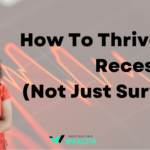Are you considering buying an existing business? It’s a major decision and one that comes with many risks. But, with the right planning and preparation, it doesn’t have to be as daunting.
In this blog post, I’ll walk you through my five top reasons for buying an existing business – so you can make an informed decision and take advantage of this excellent opportunity.
Table of Contents
Buying an Existing Business vs Starting From Scratch
I’m not sure if I can say I’ve enjoyed building businesses from scratch. Sure, there’s the pride that comes from building something from nothing.
But there are times when things get hard.
Very, very hard.
All of my tough times have taken me to the brink of despair and self-doubt, and more often than not, I’ve doubted if I really was good enough for business.
Stage 1 was the toughest – the stage where one puts in 10 units of work and gets only 1 unit of pay in return.
Today, I’m feeling no different. Despite the fact I love this subject matter and that I can talk about it all day long for free, it’s definitely been difficult and recently, I’ve been hanging on by a thread.
This leads me to my question:
“What’s someone to do if they want a business, but don’t want to go through the difficult start up stage?”
Simple answer: Buy an existing business.
My eyes were really opened when my partners, not by my initiative, decided to buy a tax firm.It’s only been a few months since we took over, but I’m sold.
I believe one of the greatest wealth building opportunities of the next decade is to purchase businesses directly from aging baby boomers.
So, let’s dive into this often overlooked way to grow wealth and control cash flows.
5 Compelling Reasons For Buying An Existing Business in 2023
As aging baby boomers start to retire, many of them are looking for ways to cash out their life investments.
One of the most popular options is to sell their private businesses. This presents an incredible opportunity for savvy investors who want to build wealth and create a passive income stream.
Buying private businesses from retiring baby boomers offers numerous advantages, including access to existing customer bases, established infrastructure and brand recognition, as well as potential tax benefits.
Let’s take a closer look.
#1. Access To Existing Customer Bases

One of the biggest advantages of acquiring an established business is gaining access to its existing customer bases. You get the opportunity to tap into a ready-made pool of customers who are familiar with the brand and products or services being offered.
This can give you a jump start on your new venture, since you can skip the decades that building up a consumer base would have otherwise taken you.
These customers often provide valuable insights into what works and doesn’t work for them in terms of product/service offerings, which can be incredibly helpful when trying to determine where best to focus your efforts moving forward.
This is the main reason our company, High Return Real Estate, bought the tax firm it did last year. We wanted direct, non-intrusive inside access to the tax clients to sell properties.
It was run by a 73-year-old guy who’s been in the business for 40 years but somehow managed to lose his CPA license. He had other CPAs on payroll that were properly licensed, but this severely restricted how he ran his company.
I wouldn’t say he was desperate to sell, but we could say he was highly motivated. Well, actually, this gave us a tremendous advantage in the negotiations. We were able to get the entire business plus the building for only $35k cash down. The rest, he seller-financed.
There are a ton of great prospects for us in the client list. In fact, some of them have a million dollars in liquid cash and want to buy property to create cash flow to take advantage of the tax deductions available to them as property owners.
As soon as we get some more inventory (we just sold almost all of it out to 1 buyer), we’ll have a steady stream of cash rich buyers to take them down.
#2. Brand Recognition

When it comes to buying a private business from aging baby boomers, one of the biggest advantages is being able to take up the brand name.
This can be incredibly beneficial for investors looking to reduce startup costs, as they will have access to existing resources that would otherwise need to be built from scratch.
Having an already established brand in place helps streamline the process of launching a new venture, as well as helping ensure its long-term success by providing customers with a sense of familiarity and trust in the product or service being offered.
It also gives you an advantage over competitors who are starting from scratch, allowing you to gain market share more quickly while at the same time reducing your overhead expenses.
Our CAP tax firm seller was only charging approximately $300 per return. It’s like he forgot the 80’s were over. His office building hadn’t been remodeled since then, he was still doing a lot on paper instead of electronically, and he was severely undercharging.
Not only that, we saw a huge opportunity to upsell to additional services that could benefit his higher net worth clients. In my mind, I would have been totally good with a break even tax firm acquisition provided it generated great leads and buyers for our properties.
But when my partner Tyler got his hands on the firm after we closed, he went to work in meeting with each client and showing them how they were missing out on a lot of tax strategies.
Many have since upgraded to bigger packages, and the revenues are getting serious. I wouldn’t be surprised if, in 2023, we triple the revenues.
Because of regulations and having three partners, I only own 12% of the firm, so it’s not going to be a huge windfall, but it’s another stream of passive income and access to a nice database of potential investors.
#3. Tax Benefits

We can’t talk about buying a private business from an aging baby boomer and not talk about the potential tax benefits as part of the purchase agreement.
These can include deductions for business expenses and capital gains exclusions, which can provide significant tax savings. When purchasing an existing business, buyers may be able to take advantage of depreciation allowances which allow them to write off a portion of their investments over time.
Furthermore, many private businesses are eligible for favorable tax treatment through special programs such as Internal Revenue Code (IRC) Section 1031 exchanges, which allow sellers to defer capital gains taxes on qualified transactions.
There may also be potential state and local incentives available for those who buy businesses located in their areas, such as incentive payments or tax credits.
Finally, depending on the structure of the sale agreement, buyers may be able to participate in various retirement plans or stock options that can provide additional income down the road.
#4. Hassle-Free Head Start
The biggest advantage of buying an existing business has to be a ready-made foundation that you just need to capitalize on. The existing infrastructure and brand recognition can help reduce startup costs as well as give you immediate access to customer bases.
Have you ever noticed how once you start looking into something, or become more aware of its existence, you start to see it in more and more places?
For example, you start looking to buy a certain type of car, then from that point forward you notice how many of the same car is on the roads. What was previously unnoticeable is now very much in focus. This is because you have a reticular activating system.
The reticular activating system (RAS) is a network of neurons located in the brainstem that plays an important role in regulating our level of alertness and consciousness. It allows us to be aware of what is going on around us and helps us focus our attention on certain stimuli or tasks.
The RAS also acts as a filter for incoming stimuli, allowing only those signals that are relevant to get through while blocking out irrelevant distractions. In this way, it enables us to stay focused on whatever task we’re working on without being overwhelmed by external inputs.
When I started learning about buying private businesses, several situations came up. My Church-going buddies, Jake and Matt, were buying up businesses. Jake is a young hustler and is closing on a convenience store. There’s nothing sexy about this business other than it gushes free cash flow.
Matt is buying up property management companies that already have 100 doors under management. And then Rocky, a relative through marriage, sold his in-home nursing care business and told me at Christmas dinner, “I didn’t really care what I got from it. I have already reached my financial goals. I just wanted to be done with it and pass it on to someone who could run it successfully.”
But why would he be willing to practically give it away?
A lot has to do with net worth. If you already have a few million, do you really care that much if you squeeze an extra $50k or $100k out of the sales price? From the seller’s perspective, it’s very different selling a private business versus selling publicly traded shares.
In the private markets, it’s a LOT harder to find qualified buyers, so the buyer pool is very small. Your asset is relatively illiquid, meaning it’s difficult and time consuming to sell. In the public markets, there are thousands of buyers and your ownership interest is very liquid.
So essentially, what Rocky was saying when he was willing to give it away, is that he already has plenty of money and that he wants someone good to carry on what he built, without having to mess around with a long, drawn out sales process. He didn’t want the hassle.
#5. Spoon-Fed Experience
The fifth benefit of buying an existing business is the opportunity to benefit from the experience and industry knowledge of those who have worked in that business for years.
This is invaluable, as it gives entrepreneurs access to expertise that could otherwise take years of time-consuming trial and error to develop. This can be especially helpful when it comes to determining which product or service offerings are most likely to be successful in the marketplace, as well as where best to focus your efforts moving forward.
Wisdom like this provides insight into market trends and competitive dynamics, allowing investors to establish a competitive advantage over newcomers who are starting from scratch.
FAQs: Buying an Existing Business
Is buying an existing business risky?
Yes, buying an existing business is always a risk. As with any venture, there is the potential to make money or lose it. That said, if you take the necessary steps and do your due diligence in evaluating the existing business, you may be able to minimize risks and increase potential returns. Before committing to buy a business, understand the liabilities of acquiring an established entity along with its assets. By carefully examining every aspect of the business before you purchase it – from customer base and supplier relationships to products/services offered and financial records – you can make sure that it meets your goals and objectives without creating more risk than necessary.
When should you not invest in a business?
You should avoid investing in businesses with high overhead costs that may exceed their profits, as well as those with limited resources, no established leadership team or unproven business models. Additionally, you should stay away from companies that do not have clearly defined goals and strategies for achieving them or any type of strong competitive advantage over their rivals. Finally, you should remain wary of businesses with unclear financial statements and those whose finances rely on debt rather than equity-based financing options. Taking these precautions ensure your investment remains safe and profitable in the long run.
What are the disadvantages of buying an existing business?
One of the main disadvantages of buying an existing business is that it may require significant capital up front. Even if financing can be arranged, purchasing a business often requires more money than starting from scratch. Additionally, existing businesses may come with legal issues such as holdover leases or employee contracts that need to be managed correctly. Furthermore, any existing brand name or reputation must be maintained by the buyer in order to retain customers and clientele; failure to do so could lead to a decline in sales or even lawsuits. Finally, there are often hidden liabilities that come along with a pre-existing business which could leave you exposed to additional risks not accounted for in the purchase price.
Wrapping It Up
Startup businesses face a number of challenges and risks, including the potential for failure.
According to recent studies, around 20% of startups fail within the first year, while approximately 50% don’t make it past five years. These numbers are discouraging but they also demonstrate how difficult it is to sustain a successful business in today’s competitive market.
The reasons why startups fail can vary greatly from one company to another, but there are some common factors that increase the chances of failure such as inadequate planning and undercapitalization.
What’s more, inexperienced founders often lack the necessary skills or resources needed to succeed in their chosen industry.
Ultimately, by taking advantage of the decades of experience provided by retiring baby boomers, investors are able to fast-track their success while reducing the risk associated with launching something new from scratch.
As a quick recap: the five main benefits to buying an existing business are:
- Access to existing customer bases, giving you an immediate source of revenue
- Established infrastructure and brand recognition which can help reduce start-up costs
- Potential tax benefits as part of the purchase agreement
- The opportunity to build on what has already been established by the previous owner
- Ability to benefit from the experience and industry knowledge of those who have worked in that business for years.
This knowledge can provide valuable assistance in navigating government regulations and navigating any common pitfalls associated with launching a new venture.
Whenever you’re ready, there are 3 ways I can help you level up your finances:
- Take an affordable self-learning e-course: COMING SOON
- Take our new interactive course The Indestructible Wealth Academy to help you buy ten cash flowing properties within two years, with the goal to create a million in equity: COMING SOON
- Ready to invest your money?
→ Buy cash flowing, turnkey real estate. It’s acquired, renovated, and managed for you by my company, High Return Real Estate.
→ Wish you had bought bitcoin back at $12,000? Now you can with my company Simple Crypto Mine. We provide the machines, the hosting, the technical expertise, and the maintenance. Watch bitcoin drop in your wallet every five days for another stream of passive income. Email me at [email protected] to request the investor packet.
→ Are you an Accredited Investor with larger amounts of capital to invest? Syndicated deals in self-storage and car washes are 100% passive and very lucrative. Email me at [email protected] to request the latest investor replay to learn more!





